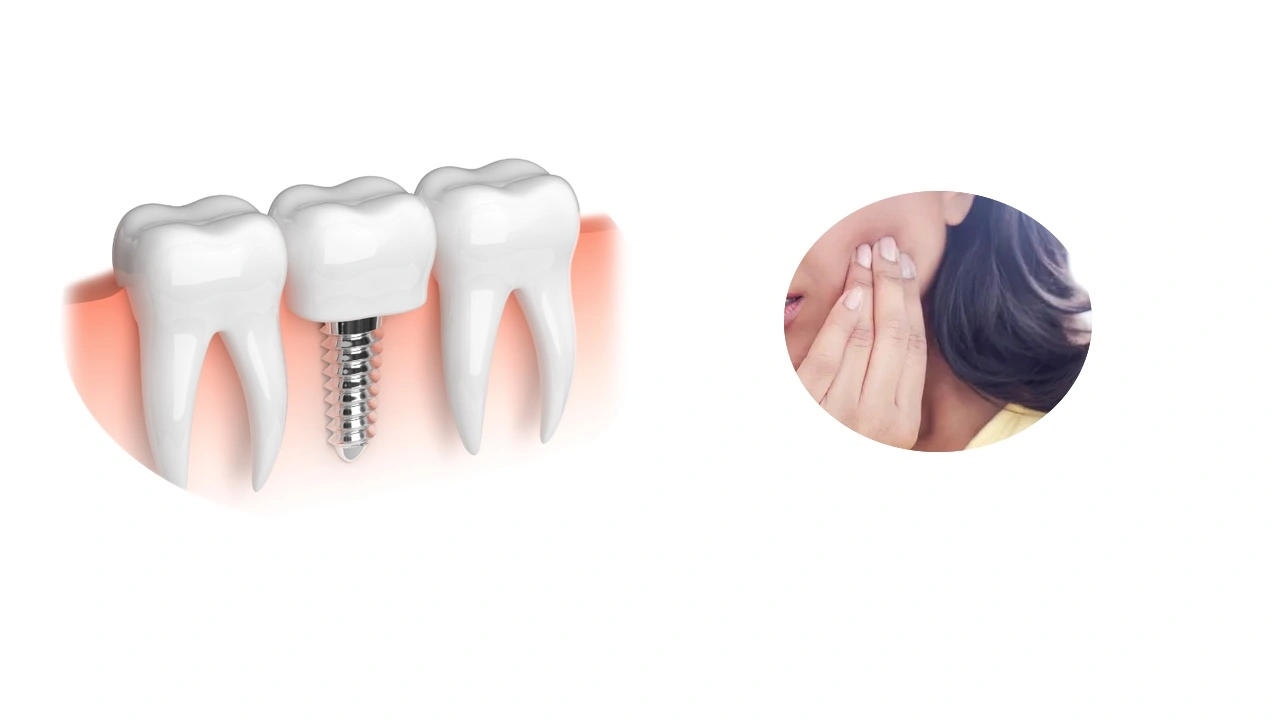Dental implants are a popular and effective solution for replacing missing teeth. However, as with any surgical procedure, some discomfort and pain are expected during the recovery period. While temporary, this pain can be uncomfortable and impact your daily activities. Fortunately, there are various strategies and tips to help alleviate dental implant pain and promote a smoother healing process.
Understanding Dental Implant Pain
The pain associated with dental implants typically occurs during the initial healing phase. This is a normal response as the implant integrates with the jawbone and surrounding tissues. The extent of pain can vary depending on the individual’s pain tolerance, the complexity of the procedure, and the number of implants placed.
Causes of Dental Implant Pain
Several factors can contribute to pain after dental implant surgery:
- Surgical Trauma: The process of drilling into the jawbone and inserting the implant can cause trauma to the surrounding tissues, leading to swelling and discomfort.
- Bone Integration: As the implant fuses with the jawbone, known as osseointegration, it can cause mild to moderate pain as the bone remodels around the implant.
- Nerve Irritation: In some cases, the implant placement may irritate or compress nearby nerves, resulting in radiating pain or numbness.
- Infection: If an infection develops at the implant site, it can cause severe pain and swelling, requiring prompt medical attention.
Effective Pain Management Strategies
To alleviate dental implant pain and promote healing, consider the following strategies:
- Pain Medication: Your dentist or oral surgeon may prescribe over-the-counter or prescription pain medications to manage discomfort during the initial recovery period.
- Cold Therapy: Applying an ice pack or cold compress to the affected area can help reduce swelling and numb the pain.
- Salt Water Rinses: Gently rinsing with warm salt water can help promote healing and reduce inflammation.
- Soft Food Diet: Sticking to a soft food diet and avoiding hard or crunchy foods can prevent further irritation and allow the implant site to heal properly.
- Proper Oral Hygiene: Maintain good oral hygiene by gently brushing and flossing the implant area, as recommended by your dentist.
- Avoid Smoking and Alcohol: Smoking and consuming alcohol can delay the healing process and increase the risk of complications.
Tips for Managing Dental Implant Pain at Home
In addition to following your dentist’s instructions, there are several home remedies and tips that can help alleviate dental implant pain:
- Clove Oil: Applying a small amount of clove oil to the implant site can provide temporary pain relief due to its natural numbing properties.
- Turmeric: Adding turmeric to your diet or taking turmeric supplements can help reduce inflammation and pain.
- Over-the-Counter Pain Relievers: Non-steroidal anti-inflammatory drugs (NSAIDs) like ibuprofen, ultram or acetaminophen can help manage pain and swelling.
- Rest and Relaxation: Allowing your body to rest and recover by avoiding strenuous activities can promote healing and minimize discomfort.
When to Seek Professional Help
While some discomfort is expected after dental implant surgery, severe or persistent pain may indicate a more serious issue. It’s crucial to contact your dentist or oral surgeon if you experience:
- Severe, unbearable pain that does not respond to medication
- Excessive bleeding or discharge from the implant site
- Fever or chills, which could be signs of infection
- Numbness or tingling that persists beyond the expected recovery time
Prompt medical attention can help address any underlying complications and ensure proper healing.
Statistics Related to Dental Implant Pain
- According to a study published in the Journal of Oral Implantology, approximately 50% of patients reported mild to moderate pain after dental implant surgery [https://www.ncbi.nlm.nih.gov/pmc/articles/PMC6122805/].
- Research has shown that proper pain management strategies, including the use of NSAIDs and cold therapy, can significantly reduce postoperative pain and discomfort after dental implant surgery [https://pubmed.ncbi.nlm.nih.gov/30796830/].
- A study by the American Academy of Implant Dentistry found that patients who followed their dentist’s instructions and maintained good oral hygiene experienced faster healing and reduced pain levels [https://www.aaid.com/about/press_room/dental_implants_faq.html].
By understanding the causes of dental implant pain and implementing effective pain management strategies, individuals can find relief and promote a smoother recovery process. Proper communication with your dental professional and adherence to post-operative instructions are key to achieving a successful implant outcome.

